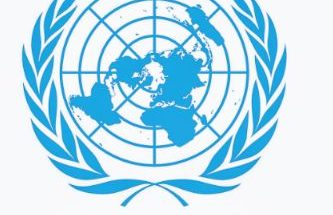
Western primary and secondary sanctions on Russia worsen the global food crisis.
Ugo Akpan • 19 June 2022
June 4, 2022, marked the 100th day of Russia’s intervention in the conflict in Ukraine. While the mainstream media in the collective West ran all manner of cheerleading commentary regarding Ukraine’s valiant fight against supposed unprovoked Russian aggression, the Security Service of Ukraine (SBU) and the information warfare units of the Armed Forces of Ukraine (AFU) including the Centers of Informational and Psychological Operations churned out a steady flow of propaganda stunts from the Ghost of Kiev fabrication and the Snake Island ruse, to the more concerning provocations related to Bucha atrocities and the attack on the train station in Kramatorsk. In some cases, the mainstream Western (and affiliated) media have reported the propaganda coming out of Kiev uncritically only to have to retract these reports after embarrassing disclosures about the falsehoods, while in other cases the western media has doubled down on dubious claims from the Ukrainian side and thus extended the narrative in the West’s information war on Russia.
Another propaganda narrative that has been getting traction is the intensifying food crisis around the world and the attribution of the increasing food shortages to Russia’s blockade of the ports of Odessa, Chornomorsk and others. Speaking at a UN meeting in New York on global food security, Secretary General António Guterres blamed the global food crisis on “shortages of grain and fertiliser caused by the war, warming temperatures and pandemic-driven supply problems which threaten to “tip tens of millions of people over the edge into food insecurity”. The Secretary General went on to urge Russia to release Ukrainian grain exports in order to avoid “malnutrition, mass hunger and famine in a crisis that could last for years”.
According to the Russian Joint Coordination Headquarters for Humanitarian Response in Ukraine, it is Ukraine that is cutting off its own seaports. In a published report, the Joint Coordination Headquarters said “75 foreign vessels from 17 countries remain blocked in seven Ukrainian ports (Kherson, Nikolaev, Chornomorsk, Ochakov, Odessa, Yuzhniy and Mariupol). The threat of shelling and high mine danger created by official Kiev in its internal waters and territorial sea prevents vessels from safely leaving the ports and reaching the open sea.
“In confirmation of this, the Russian Federation is opening daily from 08:00 to 19:00 (Moscow time) a humanitarian corridor, which is a safe lane south-west of Ukraine’s territorial sea, 80 nautical miles long and three nautical miles wide.
“Detailed information in English and Russian on the modus operandi of the maritime humanitarian corridor is broadcast daily every 15 minutes on VHF radio on 14 and 16 international channels in English and Russian.
“At the same time, the Kiev authorities continue to avoid engaging with representatives of states and ship-owning companies to resolve the issue of ensuring the safe passage of foreign vessels to the assembly area.
“The danger to navigation from Ukrainian mines drifting off their anchors along the coasts of Black Sea states remains.
“The Russian Federation is taking a full range of comprehensive measures to ensure the safety of civilian navigation in the waters of the Black Sea and the Sea of Azov.”
Of course, the standard response to this would be “Russian propaganda”, a catchall phrase that has come to characterise the intellectual laziness of western media and governments when confronted with Russian and Chinese fact-based rebuttals to actual propaganda emanating from western sources. Nevertheless, we must be thorough, and so we find after researching reporting on the intrepid Moon of Alabama blog that the International Maritime Organization (IMO) has published letters and reports about the Maritime Security and Safety in the Black Sea and the Sea of Azov:
“At the start of the conflict approximately 2000 seafarers were stranded aboard 94 vessels in Ukrainian ports. 10 vessels have subsequently safely departed the Sea of Azov and 84 merchant ships remain with nearly 450 seafarers onboard….
“The Council (C/ES.35) on the 10th and 11th of March agreed to encourage the establishment, as a provisional and urgent measure, of a blue safe maritime corridor to allow the safe evacuation of seafarers and ships from the high-risk and affected areas in the Black Sea and the Sea of Azov to a safe place in order to protect the life of seafarers, and ensure the mobilization and commercial navigation of vessels intending to use this corridor by avoiding military attacks and protecting and securing the maritime domain….
“The Russian Federation has informed IMO that it had established a humanitarian corridor to provide for the safe evacuation of ships once outside the territorial waters of Ukraine. Despite this initiative, there remain many safety and security issues which hamper access to the corridor and the ability for ships to depart from their berth in Ukrainian ports.”
Ukraine’s ports are at MARSEC (maritime security) level 3 and remain closed for entry and exit. Sea mines have been laid in port approaches and some port exits are blocked by sunken barges and cranes. Many ships no longer have sufficient crew onboard to sail.
Ukraine also provided its preconditions for the safe evacuation of ships from their ports. These include an end to hostilities, the withdrawal of troops and ensuring the freedom of navigation in the Black Sea and Sea of Azov, including carrying out mine-sweeping activities with the involvement of Black Sea littoral states.
Since the MARSEC level at a port is determined by the local authority, it follows that Ukraine is effectively holding ships hostage at its ports by making impracticable demands of Russia. By extension, it is Ukraine that is weaponizing global food insecurity, and it is doing this with the support of its western backers, including the UN Secretary General António Guterres, who has thrown his support behind the western bloc in this crisis.
Antecedents of the global food crisis
The global food crisis has been looming since 2019 following the onset of the worst drought in history. Nearly half of the United States has been affected by this drought according to the National Oceanic and Atmospheric Association. The situation is particularly severe in the northwestern part of the country which has faced some of its driest conditions in over a century with a heat wave that killed hundreds of people. According to SPEI Global Drought Monitor, no continent apart from Antarctica has been spared. Europe, Urals/Central Asia, and Africa have been impacted by this severe drought. This heat-induced drought conditions are consistent with the projections of environmental impacts from climate change according to the 2018 IPCC Special Report on the impacts of global warming of 1.5°C above pre-industrial levels.

The impact of the drought on food supply was further exacerbated by the Covid-19 pandemic lockdowns and the impact on global supply chains, especially with the lockdowns in China.
While the war has no doubt contributed to the crisis, it is especially the sanctions imposed by the West -including the effects of secondary sanctions on global trade with Russia – which have aggravated the global food shortages by pushing oil and gas prices up through restrictions on the sale of Russian oil and gas, and disrupting the supply of grain and cereals due to the sanctions on Russian and Belarussian grain. With about 80 percent of sunflower oil exports coming from Ukraine and Russia (both countries account for 53 percent of both sunflower seeds and oil), and exports from Ukraine having fallen by 95percent since the escalation of the Ukrainian conflict, the impact on supermarket shelves has been especially stark. (Secondary sanctions are caused by the secondary effects of sanctions on Russia such as insurance companies’ unwillingness to insure cargo transported from Russia or the US issuing warnings to African countries to avoid buying “stolen Ukrainian grains“.)

Consequences of food crises
Food crises in the past have led to social unrest and in some instances, such as the so-called “Arab Spring”, the eventual overthrow of governments and a threat to the social order. Social unrests in general threaten the social order and as such, governments and their elite backers are apprehensive of social unrest. A case in point is the authoritarian, militarized and repressive response to the Black Lives Matter protests in the USA in the summer of 2020, and the ongoing repression of the January 6 protesters.
Governments in the West should therefore be nervous about the ongoing food crisis, especially given the backdrop of the declining trust of the European and US publics in their governments since the watershed social dislocation wrought by the 2008 American Financial Crisis and the global recession caused by that crisis. In fact, since the 2008 financial crisis, the past decade has been marked by a series of high-profile social protests; the Anti-Austerity protests in Greece, Occupy Wall Street (and the other Occupy movements in Spain, Rome, New York, Portugal, Chile, Berlin, Brussels, Zagreb, Nigeria, and many more), the Arab Spring across the Arab world, the Gilets Jaunes (“Yellow Vest”) in France, and the Black Lives Matter protests.

Stepping back from the precipice
The implications of the chart above should be a cause for concern in the West and should trigger a reconsideration of the failed policy of sanctions, which have been boomeranging on the squeezed masses of the working class in Europe and the US as well as threatening poorer countries with hunger and destitution. The collective West should begin to pare back its belligerent attitude towards Russia and abandon its zero-sum approach to conflict resolution. The US and its Western allies should encourage a negotiated settlement to the conflict in the conflict and give serious consideration to Russia’s legitimate security concerns, as well as the concerns of the independent republics who have suffered greatly under a brutal eight-year bombardment by the Kiev regime (something that has been well documented by the OSCE observers).
For its part, the mainstream media in the West should act responsibly and rediscover a key function of the fourth estate; i.e., that of objective journalism. The Western mainstream media should desist from burying the truth about Ukrainian atrocities, both by Nazi units and Ukrainian regular armed forces. it should come to terms with the fact of Russia’s legitimate security concerns, and quit stoking the flames of aggression against Russia, a Western proclivity since the time of Charlemagne.
Ugo Akpan, Contributing Editor, writes from Europe



